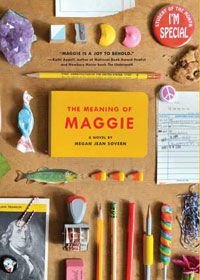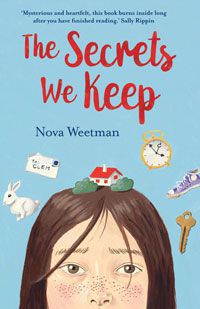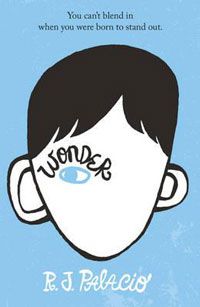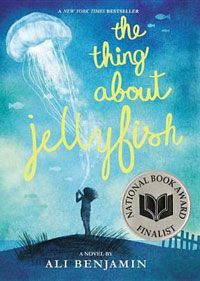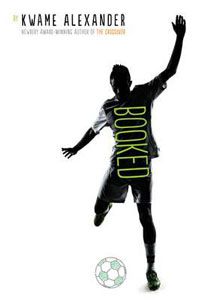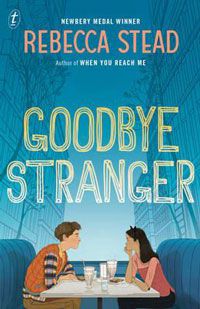Have you ever loved a book so much you weren’t able to talk sensibly about it? I’ve just finished reading Paul Griffin’s funny, sweet and devastating When Friendship Followed Me Home, and I’m feeling evangelical about it.
12-year-old Ben has spent most of his life in state care before being adopted by an older mum, the indomitable Tess. While Ben is undoubtedly affected by his past, you can see that he’s starting to thrive after two years in a stable home. When Ben finds a lost dog, their family effortlessly expands to include Flip, the adorable mutt. Then Ben’s favourite librarian introduces him to her daughter Halley – a flashy dresser, aspiring sci-fi author and part-time magician’s assistant to her father. Halley convinces Ben to train and certify Flip as a therapy dog and Ben’s network expands once more. Unfortunately Ben is going to need all the magic, hope, friends and face licks available, as it soon becomes clear that life isn’t going to cut him any breaks at all.
Griffin manages to show the resilience and vulnerability of kids in equal measure. He refuses to sugar-coat the bad things that can happen in life, and demonstrates the ways in which people can let each other down. Despite (or because of this) it offers young readers the tools and optimism to feel confident and informed when faced with tough times.
When Friendship Followed Me Home fits nicely into a small category of books that have hit our shelves in recent years – books for 9- to thirteen-year-olds that tackle some heavy life issues in an accessible and sensitive way. Here are some other recommendations for young readers who like to explore realistic and challenging situations through books.
The Meaning of Maggie by Megan J Sovern
Ambitious, over-achieving, future-President bookworm Maggie Mayfield immortalises her eleventh year in a leather-bound journal that she’s been given for her twelfth birthday. It’s a great present for someone whose family has experienced a lot of recent change – Maggie’s ‘cool dude’ dad has had to give up his job and get used to a wheelchair as his multiple sclerosis progresses. A smart and funny read about a loving family’s tensions and strengths when facing a progressive illness.
The Secrets We Keep by Nova Weetman
Grade Sixer Clem has lost everything she owns in a house fire, and now lives in a tiny apartment with her dad and attends a new school. There’s much about the past that remains hazy, including how the fire got started and the whereabouts of Clem’s mum. After a three-word untruth, Clem finds a new friend in Ellie, a classmate whose mother is dying from cancer. The Secrets We Keep blends light and dark perfectly, giving us a funny and flawed character who is struggling with anger and disappointment. It touches on mental illness and grief, and is a wonderful evocation of the difficulties of navigating friendships.
Wonder by R.J. Palacio
Wonder is perennially popular in our shops, with young and adult readers alike. 10-year-old Auggie has been home-schooled all his life, but is finally being chucked out of the nest. He’s reluctant for good reason – born with significant facial malformations, Auggie has endured multiple surgeries with the support of his amazing family and good sense of humour. He knows how even well-meaning people react to seeing his face for the first time, and what kind of barriers it presents to making new friends. Wonder has a multi-narrator structure, which allows us to view Auggie’s family and school life with great empathy. It’s a sweet and funny book, full of the small, and large, heartbreaks and triumphs of a child.
The Thing About Jellyfish by Ali Benjamin
Ali Benjamin tackles the topic of grief head-on in this thoughtful novel. 12-year-old Suzy has had easier times in her life. The transition to middle school is not going well and her parents have recently divorced. When her best friend Franny inexplicably dies in a drowning accident (Franny was a very strong swimmer), Suzy simply stops talking. Comfort comes from scientific inquiry – a school visit to an aquarium leads Suzy to develop a theory that Franny was a victim of a fatal jellyfish sting. Suzy takes her exploration of this theory as far as possible, and eventually finds new connections and answers.
Booked by Kwame Alexander
Booked is a rare beast – a story that combines a passion for sports with emotional exploration. 12-year-old Nick is mad about soccer and girls, and hates words. He’s in direct opposition to his linguistics professor father who pushes him to focus more on educational excellence. And during the course of this book, Nick finds out that words can be a helpful tool. Kwame Alexander takes on bullying, separation and divorce, racism, identity and the disappointment of injury in a fresh and approachable way. Told in free verse and incorporating wordplay, Booked is perfect for readers who get overwhelmed by long books, or who respond well to stories told in episodes and vignettes.
Goodbye Stranger by Rebecca Stead
Goodbye Stranger falls in the zone of upper middle fiction/young YA, and is a great book to discuss with a tween as it gently preempts teen issues. Bridget, Emily and Tabitha are firm friends who have a long-running pact to never fight, but their first year of high school tests this promise. Interests diverge, boys enter the picture, mean girls cause tension, miscommunication is inevitable and each girl is maturing at a different rate. The story hinges on Emily being persuaded to text a photo to an older boy, which then gets passed on to others. This allows Stead to open up a discussion of phone use and photos that never veers into shaming or hysteria.


